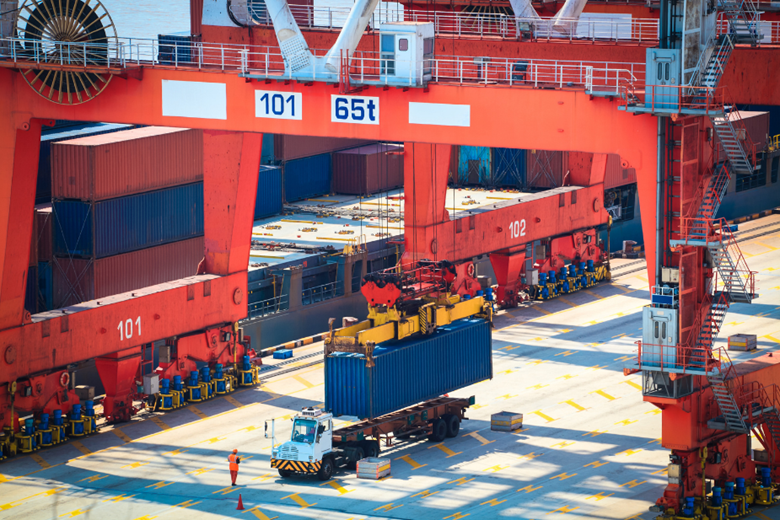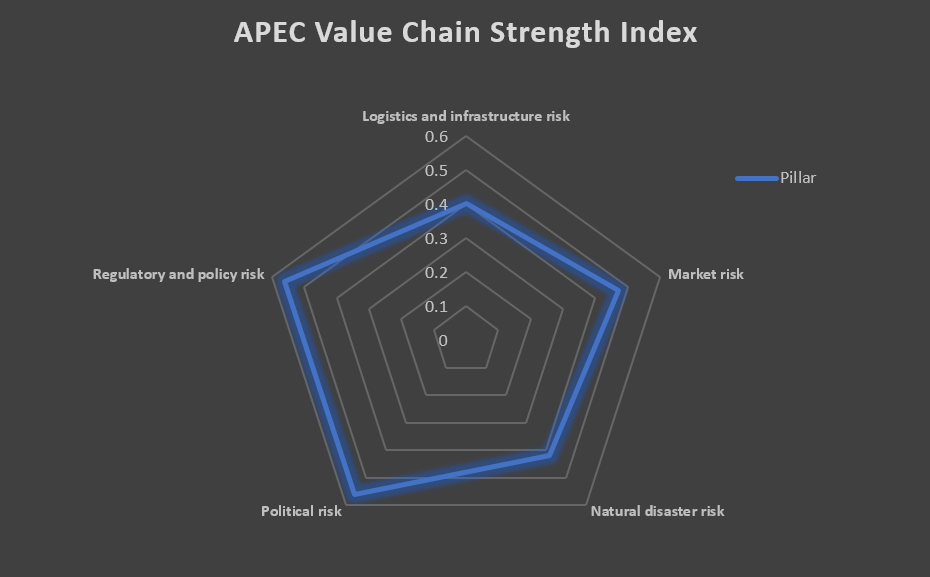Risk Management Key to Strengthening Global Value Chains Resiliency: Study

APEC economies have developed a strong foundation to deal with the COVID-19 crisis, but more needs to be done to enhance their resiliency in global value chains, according to a recent policy brief by the APEC Policy Support Unit.
“Building and strengthening resiliency is the top priority for firms involved in global value chains,” said Dr Akhmad Bayhaqi, a senior analyst with the APEC Policy Support Unit, who co-authored the study. “The economy-wide and global implications brought on by disruptions to supply chains resulting from the COVID-19 pandemic suggest that governments need to support firms in managing such risks.”
The policy brief, titled Managing Risks in Global Value Chains, analyzes the ability of the APEC region and its peer international groupings to respond to disruptions and to quickly return to normal operations. Using a value chain strength index, the policy brief measures the strength of economies and groupings against the following risks: 1) logistics and infrastructure risk; 2) natural disaster risk; 3) market risk; 4) political risk; and 5) regulatory and policy risk.
The policy brief finds that while APEC economies perform moderately well, the region falls slightly behind its peer international groupings in terms of value chain strength.

“We found that there is a significant disparity within the region with almost half of the economies registering a rather weak performance in terms of value chain strength,” Dr Bayhaqi explained. “The uneven level of development across economies in APEC affect the region’s ability to rebound quickly in times of systemic supply chain disruptions.”
More could be done by the APEC region to ensure concerted development in the area of logistics and infrastructure, according to the policy brief. The region could also strengthen their resiliency against natural disasters and health-related calamities by, for example, improving the numbers of physicians and bolstering health expenditure.
“Global value chains have increasingly become more prevalent, more integrated and more connected, increasing businesses’ exposure to certain risks,” said APEC Secretariat’s Executive Director, Dr Rebecca Sta Maria. “This is why incorporating risk management in supply chains is crucial, especially when dealing with disruption the scale of this pandemic.”
Dr Sta Maria said that a risk management framework should take a holistic approach, covering each part and every player in the supply chain network including firms, small businesses, governments and consumers.
“We cannot afford to think of risk management as a ‘what if’ component in supply chains or in our trade deals,” she added. “Looking ahead, we have to put in place measures where we ensure the smooth flow of supply chains in times of crisis, especially for medical goods, essentials products and services.”
Follow Dr Rebecca Sta Maria’s discussion at The Davos Agenda 2021 on Friday, 29 January, 10:00 CET or 17:00 Singapore time: Transforming Supply Chains in Asia-Pacific.
The policy brief notes that firms often depend on the market to deal with potential disruptions, in particular for financial markets. As such, ensuring that markets remain resilient during periods of crisis is very important for efficient value chain operations.
Lowering business uncertainties through consistent and predictable regulatory regimes also plays a vital role in building resiliency as it gives assurances to firms and investors that they would have access to an efficient legal framework should disputes arise.
With a combined nominal GDP of USD 53 trillion, the APEC region is home to several key global business hubs and accounted for almost half of the global trade of goods and commercial services in 2019.
Trade has been the driver of growth for the past three decades, however, the COVID-19 pandemic has exposed firms and businesses around the region to unprecedented disruptions.
Dr Bayhaqi highlighted that every international grouping, including APEC, “still has much room for improvement in terms of building and developing their supply chain resiliency.”
“It is important to emphasize that a supply chain is only as strong as its weakest link. Cooperation is an essential strategy to improve the regional resiliency of supply chains,” Dr Sta Maria concluded.
Read: Managing Risks in Global Value Chains: Strengthening Resilience in the APEC Region
For further details, please contact:
Masyitha Baziad +65 9751 2146 at [email protected]
Michael Chapnick +65 9647 4847 at [email protected]

